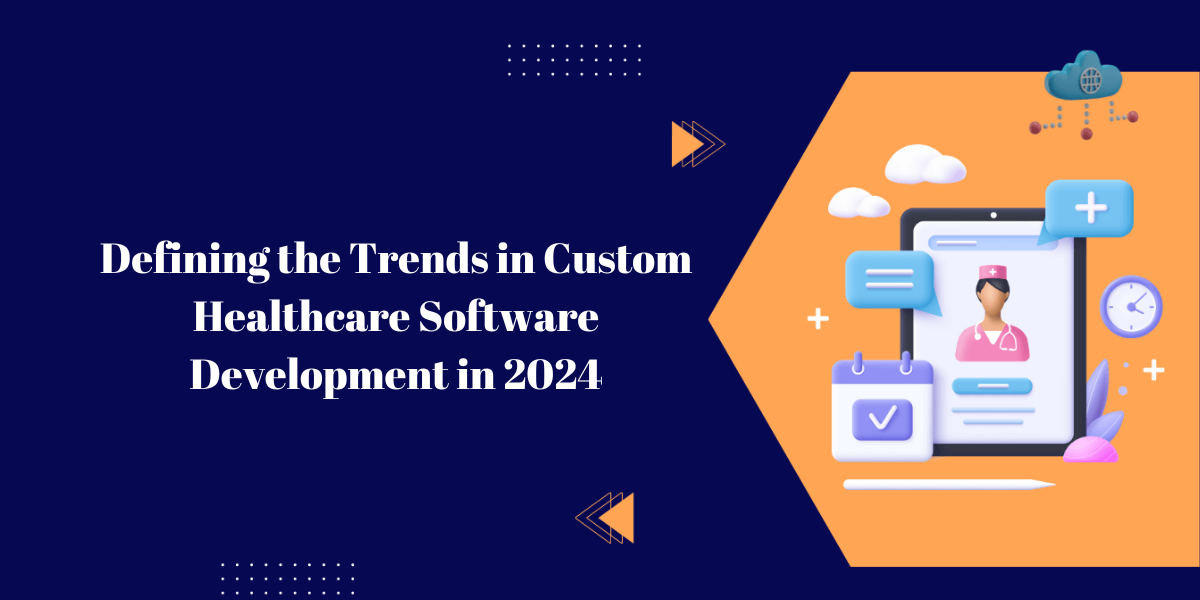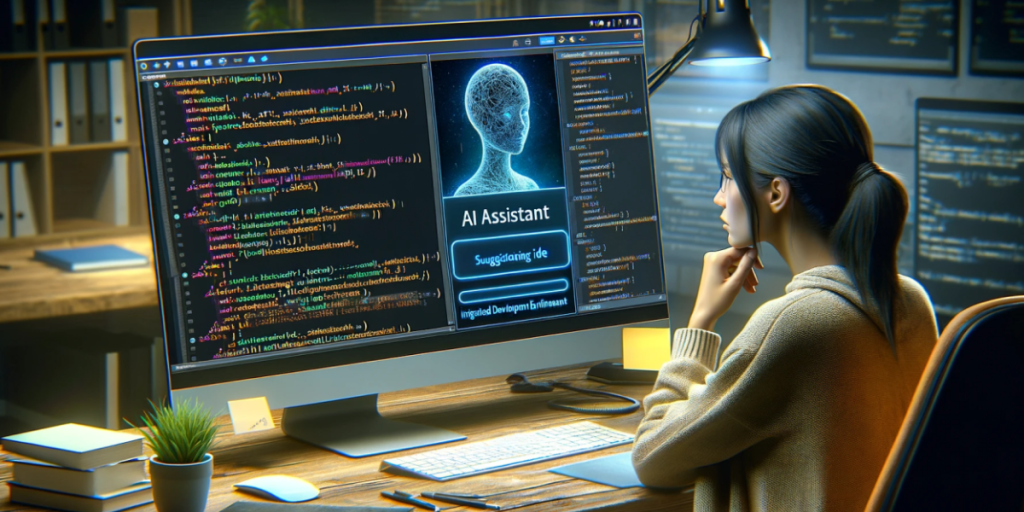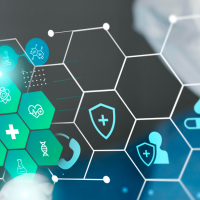The industry undergoes a radical shift driven by new technology to achieve the highest healthcare quality. We are on the threshold of 2024; custom healthcare software professionals must recognize and take an active part in advancing technological advancements that promise to transform the industry.
Possibilities are limitless in the ever-changing area of healthcare, and it is impossible to undervalue the significance of Healthcare Software Development Services. This custom software to aid healthcare professionals in evaluating effective treatment options and interacting more intimately with patients.
This enlightening exploration will examine innovative trends to transform the healthcare experience to address healthcare organizations’ and professionals’ needs and worries. The article seeks to reveal the potential and implications of these changes for improving the quality and overall healthcare quality.
Understanding Healthcare Software Development
Healthcare software development aims to increase the precision and efficiency of the services. The healthcare software development integrates software engineering concepts along with expertise in the domain to tackle particular challenges specific to this sector. Healthcare software developers and their sectors are concerned with data security and compliance with healthcare laws. Electronic Health Records systems (EHRs) are essential in improving care coordination among healthcare providers. They facilitate the storage and retrieval of data in a digital format, as well as the storage of patient records.
Software should be available to a wide range of users, which includes healthcare administrators, patients, and healthcare professionals. Testing and updates are essential for maintaining the reliability of software and adjusting it to the changing needs in healthcare for healthcare providers to provide better patient care and streamline the process.
Key Features Of Healthcare Software Development
Healthcare apps incorporate numerous vital functions to address the evolving and challenging demands. They help improve the treatment of patients, enhance procedures, increase the accuracy and security of data, and more.
EHR ( Electronic Health Records)
EHRs form the basis of Healthcare Software As a Service. EHRs are the foundation of healthcare software. EHR systems are centralized and digitized, saving patient information like medical histories, diagnoses, medication, and treatment plans. EHRs enhance cooperation between healthcare professionals by giving a complete overview of the patient’s condition. Health Information Exchange facilitates patient information transfer between healthcare professionals, promoting interoperability.
Clinical Decision Support Systems (CDSS)
CDSS incorporates clinical and patient data, giving healthcare professionals helpful information during treatment. It assists in diagnosing disease, suggesting the appropriate treatment, and alerting physicians to potential concerns such as interactions with drugs or allergic reactions. CDSS increases the effectiveness of medical decisions, reduces mistakes, and supports evidence-based practice.
Telemedicine And Virtual Care Platforms
Telemedicine allows remote-based consultations as well as monitoring. These platforms facilitate the communication of healthcare professionals with patients, improving access to care and decreasing the amount of appointments in person. Telemedicine tools incorporate video conferencing features, secure messaging, and remote monitoring.
Appointment Scheduling And Patient Portals
This feature helps streamline booking appointments for patients and health professionals. Patients can make appointments using portals for patients, look up their medical records, and securely communicate with health specialists. These features increase patients’ satisfaction, engagement, and ease of use.
Mobile Health (mHealth) Applications
Mobile app development for health care services at the fingertips of users. mHealth apps support various features, including remote monitoring, medication compliance reminders, and wellness tracking. This helps to promote a proactive strategy.
Interoperability Standards
Data exchange between healthcare providers must be effortless. Healthcare software complies with industry guidelines, including Health Level Seven International and Fast Healthcare Interoperability Resources. These standards enable different software to connect and encourage information sharing and coordination.
Data Security And Privacy Measures
Security tools that are durable and reliable due to the nature of sensitive medical data are crucial. Healthcare software employs encryption, authentication, and access control protocol to secure patient information ends. The software for health healthcare includes components to handle medical imaging for diagnostic purposes, like X-rays and MRIs. PACS helps in the storage, retrieval, and sharing of images. It improves collaboration between doctors, radiologists, and professionals.
Laboratory Information Management Systems (LIMS)
LIMS handles lab workflows, including tracking samples, placing test orders, and reporting the results. It improves the effectiveness and accuracy of laboratory procedures and offers timely diagnosis information.
Population Health Management
The software for health healthcare comes with features that permit organizations to monitor and analyze the health of certain groups of patients. This involves identifying vulnerable populations, implementing preventive measures, and optimizing resource allocation for better health and well-being of the community.
Billing And Revenue Cycle Management
Healthcare software must have the ability to offer administrative efficiency. The revenue cycle and billing functions automatize financial procedures like processing insurance claims, invoicing, and tracking payments. The feature reduces the chance of billing mistakes, speeds up reimbursement, and enhances the economic stability of healthcare institutions.
Health Analytics And Reporting
Software for healthcare reports and analysis tools to help professionals discover valuable information from large databases. These features support quality improvement, regulatory reporting, and research-based choices.
Remote Patient Monitoring
The remote monitoring feature lets you collect patient health data outside traditional healthcare settings. Wearable sensors and devices that track vital sign indicators enable medical professionals to observe the health of patients with chronic illnesses from a distance.
Training And Support Modules
For a smooth adoption of software for healthcare training and other tools for regular support. This helps healthcare professionals as well as employees to master the program and solve any problems that could occur.
Trends In Custom Healthcare Software Development
Let’s look at the significant new trends in developing custom software to improve healthcare, which are changing how patients receive medical treatment and how they are treated.
Augmented Reality And Virtual Reality
VR and AR technology in healthcare settings for instruction, patient education, and planning surgical procedures. When coupled with VR, augmented reality can result in virtual worlds that patients perceive and help prep them for surgery. In addition, these strategies are developed to aid healthcare professionals in improving their abilities throughout the procedure, which increases the chances of success. Also utilizing the two techniques to build software for healthcare, reduce human error, and increase the success rate for surgical procedures. Talk about your VR and AR requirements with experienced Healthcare Software Development Companies for the most effective outcomes for your hospital and your patients.
Cybersecurity
In addition to data breaches and criminal actions, healthcare software development solutions can also be vulnerable to cyber-crimes. Based on the Statista report released in January 2024, the costliest average of security breaches was discovered in the US healthcare field. It resulted in a loss of around $11 million.
Thus, protecting the privacy of patient information is among the critical new trends that must be incorporated into software for healthcare development. For your healthcare system to be protected from cyber-attacks, malware, and other malicious actions, it is necessary to purchase robust and secure software. Find a health software provider that adheres to the most effective cybersecurity guidelines suggested by experts in cybersecurity to reduce the risk of hackers, data breaches, and malware.
Artificial Intelligence In Healthcare
AI in healthcare has the power to deliver impressive positive results. Data volumes that are massive and better machine learning algorithms, ingenuous software design, and interconnected 5G technology have led to increased AI within the health industry. It can analyze, document, and imitate human health habits by analyzing medical data. Medical reports can provide accurate diagnoses thanks to algorithms connected to artificial intelligence. It isn’t just about diagnosing; it also helps predict the likelihood of future health issues by studying every patient’s health history and medical history.
In addition, the information from the development of healthcare software relies on artificial intelligence, which allows us to predict and automate the outcomes of different situations like patient admissions and chronic health risks. To reap the maximum benefits of health AI, choose the best firm that offers custom-designed medical software development to learn more about the latest AI and its effect on software development.
IoMT (Internet of Medical Things)
The COVID-19 epidemic has led to an emerging trend known as IoMT, also known as the Internet of Medical Things. The term refers to IoMT, the Internet of Things (IoT) utilized in the medical sector. The application of IoT coupled with MedTech tools makes health care more interconnected than it would have thought. IoMT also includes remote monitoring of patients, which monitors the patients’ medication instructions, locations when they’ve been admitted to the hospital, and numerous other features.
Big Data Analytics
Big Data is one of the leading technologies allowing you to utilize the data you collect daily to improve healthcare systems. Healthcare is responsible for about one-third of the data that is generated, which is why you need to utilize these massive amounts of information to deliver excellent medical treatment. No doubt, by employing the best healthcare software developers, hospitals, healthcare facilities, and other institutions will be able to gain an edge within the world of digital.
The ability to gather valuable data using the Big Data Analytics software and instruments in various methods. Examining medical documents, genetic data, and medical pictures for diagnosis assistance and research on treatment. Customizing medications and treatments using patient information for more effective outcomes in response and fewer adverse effects. Predicting the likely health risks, prognosis for patients, or disease onset through identifying relationships and trends derived from information related to health. Monitoring health trends across the entire population and changes in the epidemiology of conditions and devising ways to prevent disease from spreading.
Blockchain For Data Security
Healthcare software development has witnessed a rising demand for blockchain technology, an emerging trend. Blockchain is a way to ensure transparency, security, and innovation, thereby transforming Health Tech. It streamlines administrative processes and reduces the possibility of health data breaches.
There are a variety of applications where blockchain acts as a decentralized, secure platform. It protects patients’ medical information and provides access to the PU, medical professionals, nails, and insurance companies. Blockchain could transform software development in the healthcare industry because of its effectiveness, security, and curacy in healthcare systems. It can be utilized globally, and major corporations such as Google and Microsoft are investing heavily in blockchain research concerning health care. Blockchain technology significantly improves Custom Healthcare Software Development for Health Management Solutions.
For healthcare software, the issue of population health management is a significant area of focus. Platforms that analyze and aggregate the data from different sources will aid healthcare providers in identifying and catering to the needs of particular population groups. They include instruments to control chronic illness, improve the health of communities, and preventative health care.
Digital Therapeutics & Remote Healthcare Interventions
The application of digital therapy for therapeutic intervention has been growing in popularity. Solutions are being created using software for treating mental health disorders or chronic diseases, as well as rehabilitation. Treatments are offered online, and patients are provided with an individual treatment plan that is accessible and personalized.
Supply Chain Management With Blockchain
Blockchain is being studied to manage supply chain management in healthcare, which goes beyond data security. It tracks pharmaceuticals, medical equipment manufacturing distribution, and management. Blockchain technology offers transparency and the ability to trace. It also reduces the chance of counterfeit drugs and increases the overall efficiency of supply chains.
Edge Computing For Real-Time Processors
In the healthcare field, edge computing has become increasingly popular. Implementation involves processing data closer to its source instead of using cloud servers as a gateway. This will be particularly applicable to applications that require immediate processing, like IoT, as well as remote monitoring of patients within healthcare Process Automation (RPA) for Administrative Tasks.
RPA automatizes administrative routines, which are tedious and time-consuming in health care, including payment processing, claims processing, and data entry. RPA improves efficiency by reducing manually-based workloads and also reducing the chances of mistakes.
Cloud Transformation
The future of care for patients is evolving due to an integration of cloud technology and the health industry, which enhances the delivery of healthcare services by enhancing areas like health software development.
Cloud transformation refers to shifting business-related elements like applications, data, and other services out of physical storage and onto a cloud system for more efficient operations. From huge hospitals to smaller clinics, Healthcare systems are embracing cloud technology to simplify their processes. Therefore, hospitals have adopted cloud computing to improve crucial data management, streamline procedures, and use healthcare software solutions more quickly and efficiently.
Chatbots In Healthcare For Patient Engagement
Chatbots, virtual assistants, and chatbots are currently being integrated with health software to enhance the engagement of patients. Artificial intelligence-powered tools can give patients the information they need, help them respond to questions, and improve communication. Chatbots can be a fantastic way to enhance patient education and ensure patients adhere to treatments.
Platforms For Remote Training And Education
Platforms are being developed to provide remote education and training for healthcare and online learning with virtual simulations and interactive courses. The healthcare software industry incorporates tools that assist professional development and training.
Predictive Analytics
Predictive analytics are expected to develop and provide healthcare professionals with essential insights into patient results and resource usage. Customized software solutions will use these insights to enhance decision-making processes. Predictive analytics allow healthcare providers to maximize resource allocation, ensuring resources are used effectively based on predicted needs. Data-driven predictions help in better-informed decisions that result in better patient results and better experiences. Predictive analytics can identify possible health issues, allowing health professionals to take proactive measures and procedures.
Conclusion
Incorporating the latest advancements in software development for healthcare delivers pleasant patient experiences, minimizes human mistakes, and helps the medical team deliver optimal efficiency. Advanced software features also aid you in gaining an advantage within the field of healthcare security and operational flexibility; new healthcare software could create a positive impact on the business you run. All you have to do is collaborate with a healthcare software development firm that can increase efficiency for your company, providing the highest quality of patient care.
The trends discussed in this blog demonstrate the transformational influence of technology experts on healthcare, which is moving the way to more customized, safe, effective, and efficient health services. Companies that adopt custom healthcare software will undoubtedly put themselves at the front of the digital revolution in healthcare.

























